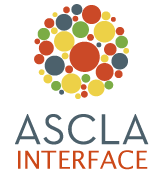By Brenda Bailey-Hainer, ASCLA President
Almost daily the media broadcasts stories about how library funding has been cut or is in jeopardy. These generally dismal funding trends in public libraries were summarized recently in Library Journal by Norman Oder.1 It�s clear that many public libraries have already cut easy budget targets such as spending for conferences, travel, and education. Others are implementing tough decisions like closing down branches or cutting hours and services. Staffing costs already have been reduced in more than 40% of libraries through staff reductions and wage freezes.
Once the easy cuts have been made, by necessity libraries must turn to more challenging ways of cutting costs. Stronger cooperative efforts can offer an opportunity. Roy Tennant, in a blog post, The Decade of Massive Cooperation, noted that libraries� best hope is to take advantage of the �efficiencies and opportunities that massive cooperation provides.� Economy of scale in cooperation is important, but the purpose and achievements of the organizations Tennant mentions illustrate that the quality of the structures used to shepherd cooperative efforts is just as critical.
A recent report issued by La Piana Consulting, Convergence: How Five Trends Will Reshape the Social Sector, offers ideas on how nonprofits can improve services through new kinds of cooperation. While this report has a significant focus on charitable nonprofits, the main ideas are applicable for all kinds of nonprofits, including professional associations, consortia, and individual libraries and cultural heritage institutions.
The five trends described in the Convergence report relate to demographic shifts, technological advances, organizational structures enabled through networks, a rise in civic engagement, and the blurring of sector boundaries.� More importantly, however, the report covers key competencies that nonprofits must develop to survive and thrive in the future. From the report, these are:
- leadership, management, and workforce development
- tools and technologies
- partnerships and organization structures, and
- role for funders.
Looking in new ways at partnerships and organizational structures is particularly relevant for ASCLA where we have sections for cooperatives and state library agencies�organizations that specifically foster collaborative work. The existence of cooperative library organizations such as LYRASIS, Orbis Cascade Alliance, Urban Libraries Council, and Western Council of State Libraries, illustrates the propensity of all types of libraries to cooperate.
As organizations, we all vie for increasingly diminishing pools of funding. Perhaps collaboration rather than competition is a better use of our scarce human resources. But how can we expand on the existing models? We need to become more knowledgeable and open to the new kinds of cooperative and collaborative organizational structures that are available to us.
The Convergence report leaves us with this thought:
In this changing environment, transformation is not optional.� The future will demand a collective rethinking of what it means to be an organization, how individuals define their work, and how best to compete and partner across many permeable boundaries. (p. 6)
Just as individual libraries are struggling with cuts and problems, likewise cooperative organizations are struggling as well. Cooperation is a central part of the ASCLA division. After all, ASCLA is the Association for Specialized and Cooperative Library Agencies. But this tendency to cooperate must undergo a metamorphosis that goes beyond existing models and creates new partnerships that cross sectors. It�s time to make more of cooperation and focus on the quality of the experience and the results to be gained.
During the recent ALA Midwinter conference in Boston, ASCLA members attended a leadership session designed to identify new ways in which ASCLA might organize itself in light of current economic, social, demographic and technological trends. The results of this meeting are chronicled in a [report link to Finding your Perfect Match: Speed Dating at the Midwinter ASCLA Leadership Meeting] in this issue of Interface. Consider these ideas with an open mind.� Let�s embrace new structures that will make ASCLA an integral part of support for cooperatives and help them be fit to thrive.
[1] Norman Oder, �Permanent Shift.� Library Journal (January 2010): 44-46.

1 comment
Deniz says:
Dec 19, 2015
There is a world trend called, Little Free Libraries. It’s an ortanizagion whose mission is to develop these little libraries in communities all over the world. Some are whimsical in design and can be as small as a rural mailbox. The conept is to take a book or donate a book. Neighbors are gathering at the little free library to chat and get acquainted over books. They are especially nice on schoolyards for summer reading so that school children can read during school breaks. Go to littlefreelibraries.com for information to create your own.